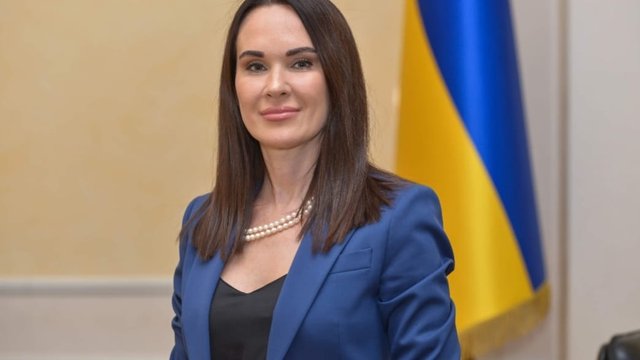Ukraine proposes to create effective mechanism for compensation of damage by Russia through intl agreement, special commission with Asset Fund - Dpty Head of Justice Ministry

The existing international organizations and state institutions have proved ineffective and incompetent in obtaining reparations from the Russian Federation, so Ukraine offers an effective concept – the conclusion of an international agreement on the creation of a mechanism for compensation for damage caused by Russian aggression, said Deputy Minister of Justice Iryna Mudra.
"The agreement will create a permanent Commission to consider claims (applications) for compensation for damage. The States parties to the Treaty block, confiscate and transfer assets of the Russian Federation to meet the requirements of the Commission. For this purpose, an Asset Fund is being created," she said in an interview with Interfax–Ukraine.
According to Mudra, the Contract also provides for the enforcement of the Commission's decisions, which should result in the applicants receiving compensation.
The Deputy Minister stressed that the absence of effective international instruments today requires the search and use of new forms and methods of forcing the aggressor to pay compensation.
"The war in Ukraine already requires a change in the fundamental foundations of international public law. Therefore, the primary task for the country is to initiate such changes with international partners," Mudra said.
She recalled that in all historical examples, reparations payments were made by a State that lost the war or capitulated and gave its consent to the payment of reparations, but this was done on the basis of international treaties.
The Deputy Head of the Ministry of Justice pointed out that the situation with Russia is completely different: the war is in an active phase, there is no consent of the Russian Federation, which questioned not only the existence of global security guarantees, but also the system of international law per se (as such).
"Our allies must either recognize that the system of public international law cannot respond at all to the challenges of an aggressive war, which an aggressor state can start against neighboring sovereign states at any time, and live with it, or force the state to pay a high price for the damage caused," Mudra explained the situation.
According to her, in conditions when Russia will not make compensation voluntarily or admit its responsibility for the damage caused, the Contract will be able to be the legitimate legal mechanism that will establish the responsibility of the Russian Federation and force it to compensate for losses. "This will be a widely recognized international instrument in the world, with the help of which the state will have grounds to take the necessary actions on its territory, including for the adoption of appropriate national legislation," the Deputy minister added.
She clarified that the Commission is a permanent body, but not a judicial one, but rather a quasi–judicial one, considering applications for compensation for material damage caused by the war from individuals, legal entities, municipal bodies, state companies, the state.
Mudra noted that applications can be divided into different categories depending on the size of the claims and the complexity of the case: simplified procedures can be applied to similar claims for loss of housing or movable property, and such claims can be combined into mass.
"More complex and larger statements will provide for a more complex procedure with enhanced requirements for evidence, which will be considered on an individual basis. Here we are talking about the loss of a large business," she added.
The Deputy Head of the Ministry of Justice indicated that the payment of compensation according to the decisions of the Commission can be made either by paying from the Assets Fund created in advance, or by compulsory execution of the Commission's decision.
According to her, funds to the Fund can come from different sources, but the main thing is that the states parties to the Agreement undertake to fill the Fund with blocked Russian assets, which in the future should be confiscated or nationalized and transferred to the Fund.
At the same time, she stated that for this, the participating States will have to change national legislation, which will require the political will of the legislative bodies of these States.
Among other sources of filling of the Fund, Mudra named special taxes and duties that can be imposed on Russia or transactions with it, or funds accumulated on escrow accounts from trade with the Russian Federation.
"The implementation of the Commission's decisions at the expense of the Fund's assets will be carried out automatically. The Commission transmits the decision to the Fund, the Fund pays the funds," the representative of the Ministry of Justice described the final stage of compensation.








